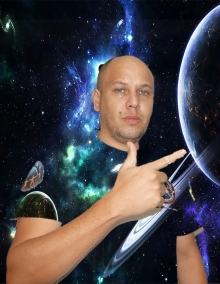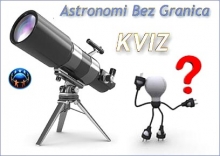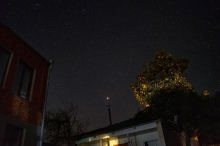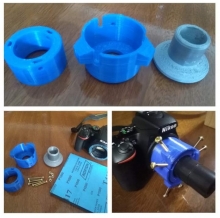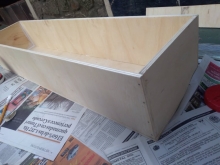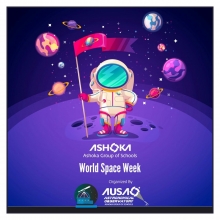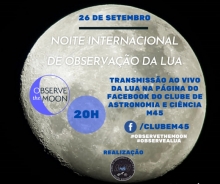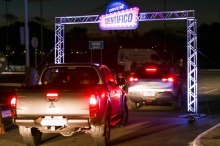By Carolyn Collins Petersen
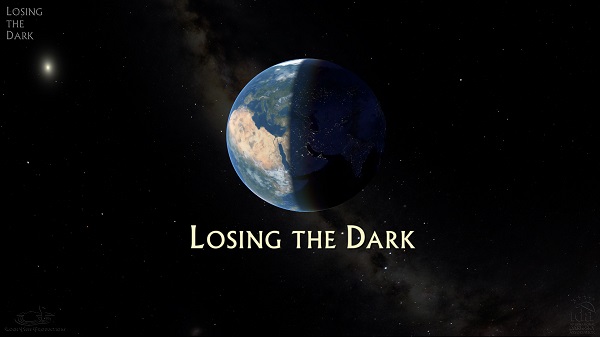
A few years ago my husband and I set out to make a short video about light pollution for the International Dark-Sky Association. This is the story of that video, called "Losing the Dark", which has spread around the world and is available for anyone to download. It has been used in talks about the subject in towns and cities, and has been downloaded by more than a thousand planetariums. I've seen stories about it showing on town cable networks and in college classrooms.
We've been dark-sky advocates and members of IDA for a number of years, and neither of us wants to see a time when the sky is so washed out that you can't step outside and see stars and planets. We live in an area where we get gorgeous dark skies, but that hasn't always been the case. Our careers have taken us into big cities and suburbs where light pollution made a definite difference in what we could see in the nighttime sky.
When we set out to make the video, we came up with a set of topics that we and the Education Committee of the IDA knew we wanted to cover. And, then, I set about researching those topics. The more I dug, the more examples of really egregious light pollution I found. For example, I had no idea that shrimping operations off the coast of Asia were illuminating huge swaths of the ocean and the sky. Astronauts can see them from orbit. Fracking operations in the U.S. give off distinctive glows, particularly in North Dakota, where companies simply burn off the gases they don't want. In those places, the environment gets a double whammy: light AND air pollution (and probably groundwater pollution as well).
As a realistic citizen of the world, I know that we need our electricity and the materials we use to produce it. Many of our homes are heated and lit by the products of fracking, oil well drilling and coal mining. But, they DO come at a cost, and that cost is something that we all need to accept and figure out how to lessen while still keeping ourselves warm and safe. So, the concept of "everyone doing what they can" to mitigate light pollution is part of our story in "Losing the Dark".
Humans are affected by light pollution in various ways. It appears to interfere with production of hormones needed to regulate our sleep cycles. That's why it's not good to stare at your computer or tablet late into the night (in particular those rich in blue light). Bright lights at night temporarily blind drivers and pedestrians, and are likely involved in more accidents than we like to think about. Not far from where I live, there's an events center named after a bank. Its giant electronic billboard sits next to a busy highway, and more than once I've drive over the hill near there and been dazzled by the brightness of that thing. My eyes are pretty good, and yet I had after-images for several minutes after that. Not good when you're just trying to get home from the airport after a long day. I can't even begin to imagine what it's like for long-haul drivers, or people whose eyes are extraordinarily sensitive to light.
So, we talk about the effects of light pollution on humans. Yet, it's not just humans who are affected by light pollution. Plants, animals, fish, and insects are also affected. In some cases, we can see immediate evidence of the problem: hatchling sea turtles heading toward brightly lit highways in Florida instead of their natural home in the sea. Birds are highly attracted to bright lights, and big cities see a huge increase in bird deaths resulting from disoriented ones crashing into high-rise buildings. And, there are many other examples of the effects of light pollution on plant life and animal reproductive cycles. Their story is part of the overall examination of light pollution in "Losing the Dark".
Of course, the stars are what we are losing the fastest in our rush to light up the sky. Really, when you think about it, why ARE we spending money to light up the sky? It's doubly frustrating for astronomers, who need good dark skies to study distant objects in space, and triply frustrating for all of us who want to share the stars with others. Not everybody has a good dark sky sight from which to just simply look at the stars.
So, the reasons to mitigate light pollution are many. What do we do to fix it?
The good news about light pollution is that it IS fixable. In some areas, towns and cities are mandating fixtures that prevent light from being spread to the sky. Sometimes the fix is as easy as learning to aim lights on the areas where we want to preserve safety -- such as sidewalks through parks. If the light is aimed on the walk, it's not aimed in your eyes. If the light over your front door is shaded so that it only lights up your front door, and not your neighbor's porch or bedroom or yard, that's good. In some places, people have learned to do with fewer lights to accomplish their needs. In other places, they've figured out that they don't need lights at all.
So, we encapsulated that into a few easy rules: shine light exactly where you want it, use light only where it's needed, and turn off the unnecessary ones. Those ideas go a long way toward fixing the problems at our local levels (home, village, neighborhood). For larger cities, wide swaths of ocean, and so on, bigger thinking is needed. I've read recently where entire municipalities have switched to light fixtures that keep light from bouncing upwards. Some of these towns have been declared dark sky cities. And, there are dark sky preserves popping up around the world. Larger problems are going to require more complex solutions, but hey -- if we can put people on orbit around our planet -- we can figure out how to make our cities a bit less light-polluted so everybody can live a little better, enjoy the night sky, and save energy costs.
Now, all this information sounds like it's too complex to put into a short video, and in a sense it is. But, we figured out that the basic message was the most important part: how to mitigate light pollution with solutions we can all manage. And, so "Losing the Dark" came out of the chute at 6.5 minutes. And, its message is now in 15 languages; the video was featured on the International Year of Light resource pages, and it's getting the message out. I invite you to watch it and share it via your local planetarium, public-access TV, your website, or wherever you think it will work to get the word out about light pollution.
We're incredibly grateful to the IDA for their support of the project, as well as a worthy team of sponsors: Star-map.fr, the Fred Maytag Family Foundation, IDA members, and the International Planetarium Society -- who all stepped forward to help pay for the production. We couldn't have done it without them.
You can learn more about the show at the IDA's web site. If you're a planetarian, check out the IDA page for more infomration about how you can download the show for free (or get it on a USB key for a small charge). 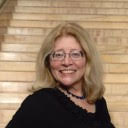 Carolyn Collins Petersen is the writer and producer of "Losing the Dark" and CEO of Loch Ness Productions, the company responsible for the production of the show
Carolyn Collins Petersen is the writer and producer of "Losing the Dark" and CEO of Loch Ness Productions, the company responsible for the production of the show








